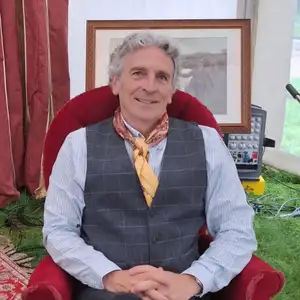Emerging research on the evidence-policy interface points to the need for ‘boundary spanners’ – resourceful and agile knowledge brokers who work across the boundaries of research and policy. Boundary spanning is undeniably important to researchers, to their universities and to government, but it is also very tricky to do well. It requires understanding how the culture of research and policy work, their incentives, their disincentives, the limitations and the opportunities. It means being worldly wise to the implicit ‘rules of the game’, speaking the lingo, having networks and access across both environments. All this requires significant expertise, experience and ongoing investment of resources, especially time.
In the UK this liminal work of public policy boundary spanning is the less well explored world in the knowledge exchange universe.
On ‘Planet Enterprise’ mature Knowledge Transfer Partnerships infrastructure is in place, well-resourced highways exist for industry fellowships to flow in and out of HEIs and career pathways for researchers to spin out of the academy and into the boardroom have all contributed over 30 years to creating a self-sustaining eco system.
‘Planet public engagement’ has rapidly been terraformed by an acknowledged career pathway in the form of the ‘science communicator’ underpinned by the impressive work of the National Coordination Centre for Public Engagement. This world knows how, why, when (and critically how to measure) researchers engagement with various publics for the benefit of their research outputs as well as the communities impacted by them.
‘Planet public policy engagement’ (3PE?) meanwhile seems cast in a planetary shadow of the dark arts. With a ‘customer’ used to being lobbied ostensibly impartial researchers are an oddity. There is a lot of fumbling in the darkness of 3PE. The surface resonates to the chirping call of government actors asking ‘What do you want?’ and researchers replying ‘What do you need?’ There are a few bright specs of light – UPEN being one of them, CAPE promises to be another. GO-Science’s championing of Areas of Research Interest and over the last 20 months researcher’s awareness of SAGE offers further illumination. The brilliant Parliamentary Knowledge Exchange Unit offers regular, well-lit signposts as to how to engage with the scrutiny of the executive. Where before there was only shadowy personal connections of the ‘clubbable’ academic who could be relied upon to offer up ‘what the science says’, a more diverse range of researchers are being drawn into the light aided their boundary spanners.
The work these boundary spanners do, whether as individuals in addition to their day job or as fully formed units, is creative and often inspiring, not least given the shoestring and uncertain budgets that most have to operate on in the prevailing ad hoc mode. As the sector awaits results from the latest gruelling REF assessment (in which ‘impact case studies’ driven and supported by this boundary spanning work hold increased relevance), now is a good moment to pause for reflection: after a nearly a decade of the ‘thousand flowers’ strategy, are we actually doing things right?
One key prompt for thought comes in a recent call made by some the leading scholars in the evidence policy nexus for more systematic study of ‘what works’ in knowledge brokerage. As Oliver et al. show, we know there is a lot of activity in this space, and most of it is very well-intentioned and passionately-driven. But it is also often reactive, instinctive, based on habit and common sense in a context of limited resources and tight timeframes. For an enterprise steeped in the language and culture of ‘evidence-based policymaking’, there is remarkably little attention paid to rigorous evaluation of efficacy and cost-efficiency by the predominately ‘professional service’ knowledge brokers in the UK’s HEIs . Meanwhile, there is extensive specialist knowledge in the academic fields of Public Policy and Science and Technology Studies about the evidence-to-policy pathway, and about cutting-edge tools in co-production and innovation that might better navigate this treacherous path. But, in the real everyday world of boundary spanning, this reservoir of knowledge, experience and skills often goes untapped; certainly, it is seldom used systematically to inform the work of boundary spanning undertaken by university knowledge brokers – due in large part to a lack of incentives for researchers to participate in the work of their institution’s knowledge brokerages.
But what is to be done? At Southampton – proud to be the inaugural Chair of the UPEN – we are seeking to build a closer relationship between practice and research to address these twin concerns. We hope that closer collaboration will help us to keep a firm footing in both academia and policy. And we are committed to leading and sharing a deeper investigation of ‘what works’ in boundary spanning, to inform further innovation and adaptation. The hope is that these steps might help make a small but important and timely contribution to sector-wide reflection on the ‘impact agenda’ in the UK , and throwing light on how ‘boundary spanning’ might be better understood in theory and supported in practice.
Dr John Boswell is Associate Professor in Politics at the University of Southampton and Gareth Giles is Head of Public Policy|Southampton


